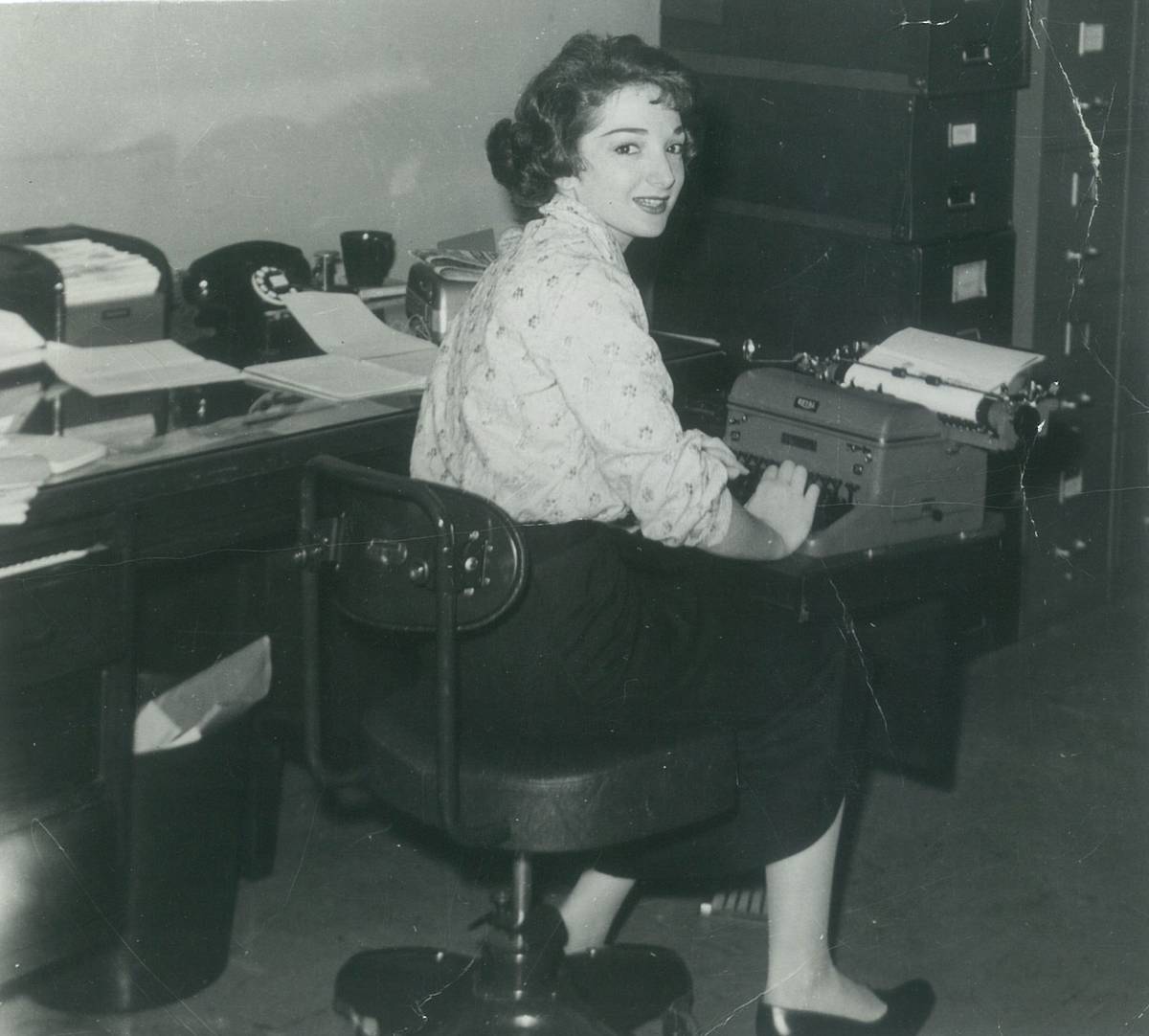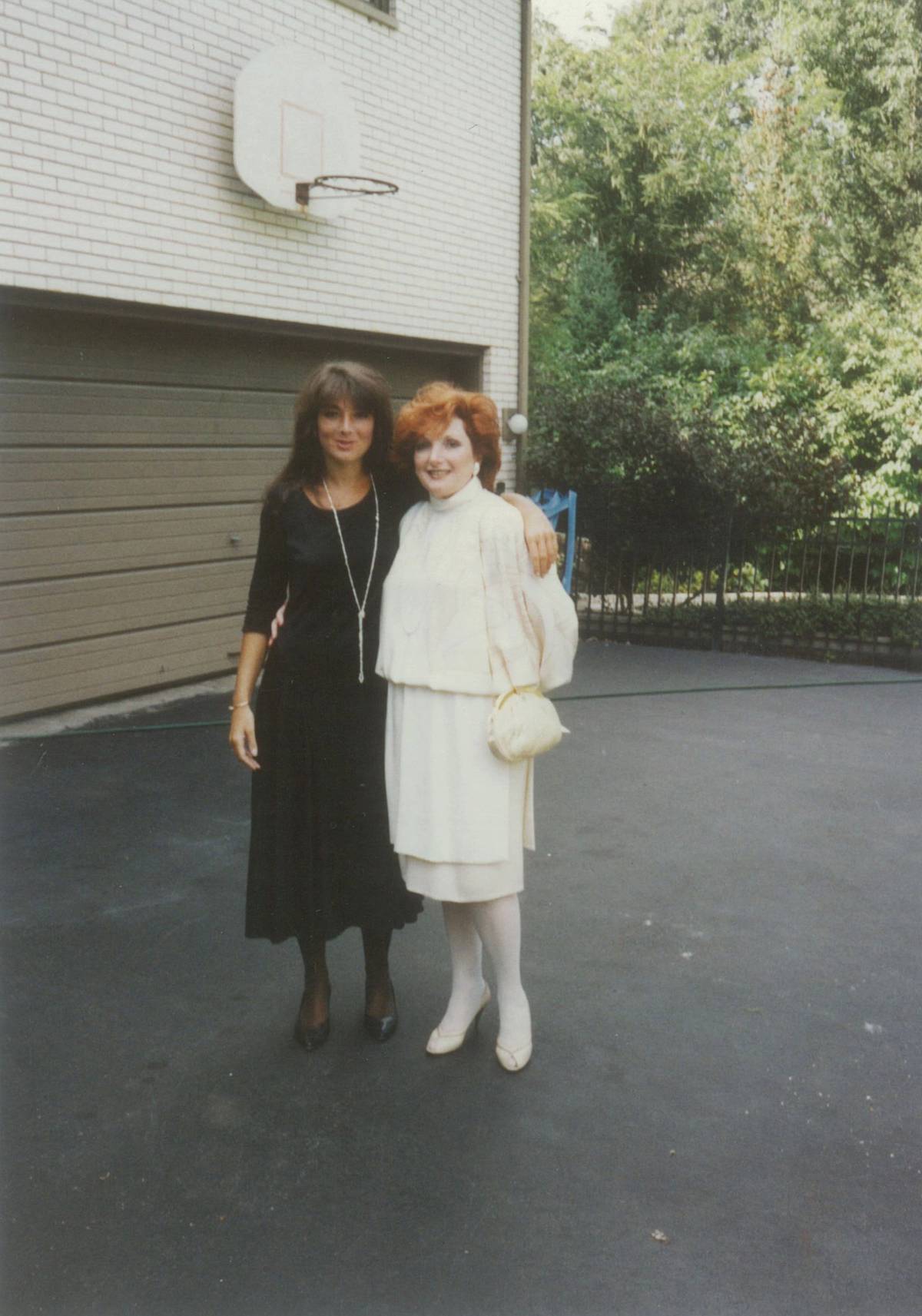A Woman’s Liberation
I spent my life trying not to be like my mother. But maybe she had everything she’d always wanted.



“Go get your old man a cup of coffee,” Dad told me in his den when I was 13.
“You already have one subservient female in this household,” I teased.
“I pay the tuition that’s allowing you to learn all that feminism crap,” he said, only half-joking.
“Dad wants coffee,” I told Mom in her airy Michigan kitchen, rolling my eyes as she rushed to pour him a cup, adding cookies with sprinkles, his favorite, to the saucer for me to carry back downstairs.
She enjoyed the division of labor I’d viewed as sexist. While I adored my mother, I just wanted to escape her life.
When she was 13, my mom was an orphan on New York’s Lower East Side. At 15, she met my dad at the Educational Alliance, a nearby settlement house. She felt blessed to have four older siblings to take care of her, hoping to have her own big family. Dad wanted to be a doctor to help his mother and sister survive breast cancer. “Just got into med school in the Midwest—ya coming or not?” was his gruff proposal four years later. She was 19 at her wedding.

She supported him by working as a secretary through his years of training as they struggled with money and quotas that kept Jews out of top programs. Her boss didn’t think “a freckle-faced Jewish girl” could handle being office manager—until she surprised him with her grit and wit, doubling her paycheck. Then, when Dad landed a decent job, she quit at 27 to have kids.
I was the oldest, the only girl. By the time I was 8 months old, Mom was pregnant again. By the time I was 7, I had three smart, loud, competitive brothers. With my father on call at the hospital, I was “mommy’s little helper” as she changed diapers, wiped away mud, fed and calmed screaming boys. I was expected to help her shop, serve meals, and clear the table as my brothers talked science with Dad. I felt bad for her, but wanted out. In my mind, Dad had an exciting mission: leaving in the morning, coming home late, regaling us with tales of stupid bureaucrats he’d fought to heal sick patients. Why, I wondered, did Mom leave her fun-sounding job to stay home, clean, cook, and do laundry all day? It bothered me that she felt the need to ask Dad if she could buy a dress or a bracelet like the housewives on TV.
In my teens, I was jealous of my brothers’ grand bar mitzvahs, since our Conservative temple offered only “consecration” ceremonies for girls when they graduated Hebrew school. At 13, the boys put their gelt into the stock market. I was supposed to join my female classmates who were planning their fantasy weddings. While my siblings watched macho cop shows and wrestling, I was enthralled by Rosalind Russell’s fast-talking newspaper reporter in the old movie His Girl Friday. I longed to be a working woman, like the ones on That Girl and The Mary Tyler Moore Show, living alone in the big city.
Mom convinced my father to let me attend the liberal, artistic high school I’d chosen. Yet I revolted against their conventional values. Escaping to college early and getting a graduate degree, I became a left-wing feminist dismissive of female domesticity. Mom was a great cook; I burned water and preferred takeout. She dressed in bright colored designer clothes and loved Sinatra. A Dylan-freak, I had black hair, black eyeliner, black jeans, T-shirts, and cowboy boots. I chronicled my craziest dates and breakups in Cosmopolitan a decade before overidentifying with Sex and the City’s child-free dating columnist, Carrie Bradshaw.
Like my mother, I also fell in love with a brilliant, bespectacled Jewish guy, but compared to her, I married late. At 35, I wore a black dress to say “I do” to a TV comedy writer who was 10 years my senior, wanting to make my own rules and money. I withstood years of rejections as an aspiring author, not selling my first hardcover until I was 43. After I fixed up my oldest brother with a colleague from my magazine job, they married and had four kids in the suburbs, making my sister-in-law the daughter my parents had always pictured. Visiting one summer, I was stung when Mom said I sounded like a broken record talking about the film option for my book, as she kept repeating my nephew’s highest math score in second grade.
In therapy, I unraveled my rebellion. My shrink wondered if I’d felt inadequate that I could never live up to my mother. After all, she was a domestic goddess with a rags-to-riches love story, a quartet of kids she was close to, and a beautiful home. Analyzing why I’d fought to be skinny, she guessed, “When your mom got fat, something terrible happened: A brother usurped you. Then a second. And a third. No wonder you prefer your body to be like a 13-year-old boy’s.” Was that why I’d reinvented myself as a black-clad struggling artist urbanite, her opposite? I knew why I’d chosen my profession when I heard the line “writing is a way to talk without being interrupted.”
Having a warm, hilarious husband was healing. Finally able to afford it, we tried for a baby. I was heartbroken when we couldn’t conceive, unable to play the role I’d never wanted to be cast in. Eventually I flourished as an author and professor. But with 100 pupils a term, some nicknaming me their “Jewish mom,” I worried I was making a living taking care of other people’s children. I loved my dual careers, but setbacks were draining, teaching me that your job won’t love you back. While I laughed at the “Oops I forgot to have children” T-shirt a fellow childless friend sent, I felt regretful for missing that milestone. But by the time I had the desire, freedom, and financial security to have a child (through surrogacy, fostering, or adoption), my spouse wasn’t up for it. In my 50s, as he faced medical issues, I fed and doted on him, relieved I’d inherited a little of Mom’s nurturing side.

Meanwhile, when she was my age, she’d launched her second act professionally after my youngest brother went to college. I asked Dad why—of all professions—she started a party-planning venture. “As a poor little girl with a sick mom, she never had birthday parties,” he said. Delighted to deliver Mylar balloons and bonbons, she was more popular than my illustrious father. Then, at 65, instead of expanding her company, she retired so they could focus on being joyful grandparents.
“But you could be so successful!” I told her.
She already was a success, she insisted, having everything she’d ever wanted, unwilling to change the dynamic of her miraculous marriage. My mother enjoyed letting her husband handle the bills and buy her clothes and jewelry; it made her feel adored and special.
After losing my 85-year-old father to heart failure four years ago, I worried Mom wouldn’t function well without him. Yet she showed an acute business sense, expertly managing their affairs on her own, leading me to wonder if she’d always steered the family finances while empowering my father in his role of breadwinner.
Visiting my still-energetic mom, I saw how lucky I was to have parents who supported my dreams so different from their own. I regretted the condescension I’d shown for her choices when I was younger. Remaining devoted to her four kids and five grandkids, she still had great memories of her two decadelong careers, while I never achieved my mother’s patient balance between parenthood, working, and living. Maybe she’d figured out the whole female body clock and knew what I didn’t: that you can have it all, just not simultaneously. Although I’m fulfilled by Freud’s “essential forces” of love and work, lately I find myself wishing my life had been more like hers.
Susan Shapiro, a Manhattan writing professor, is author of several books her family hates like Barbie: Sixty Years of Inspiration, Five Men Who Broke My Heart, The Forgiveness Tour, and her writing guide, The Book Bible. Follow her on Twitter at @Susanshapironet and Instagram at @profsue123.